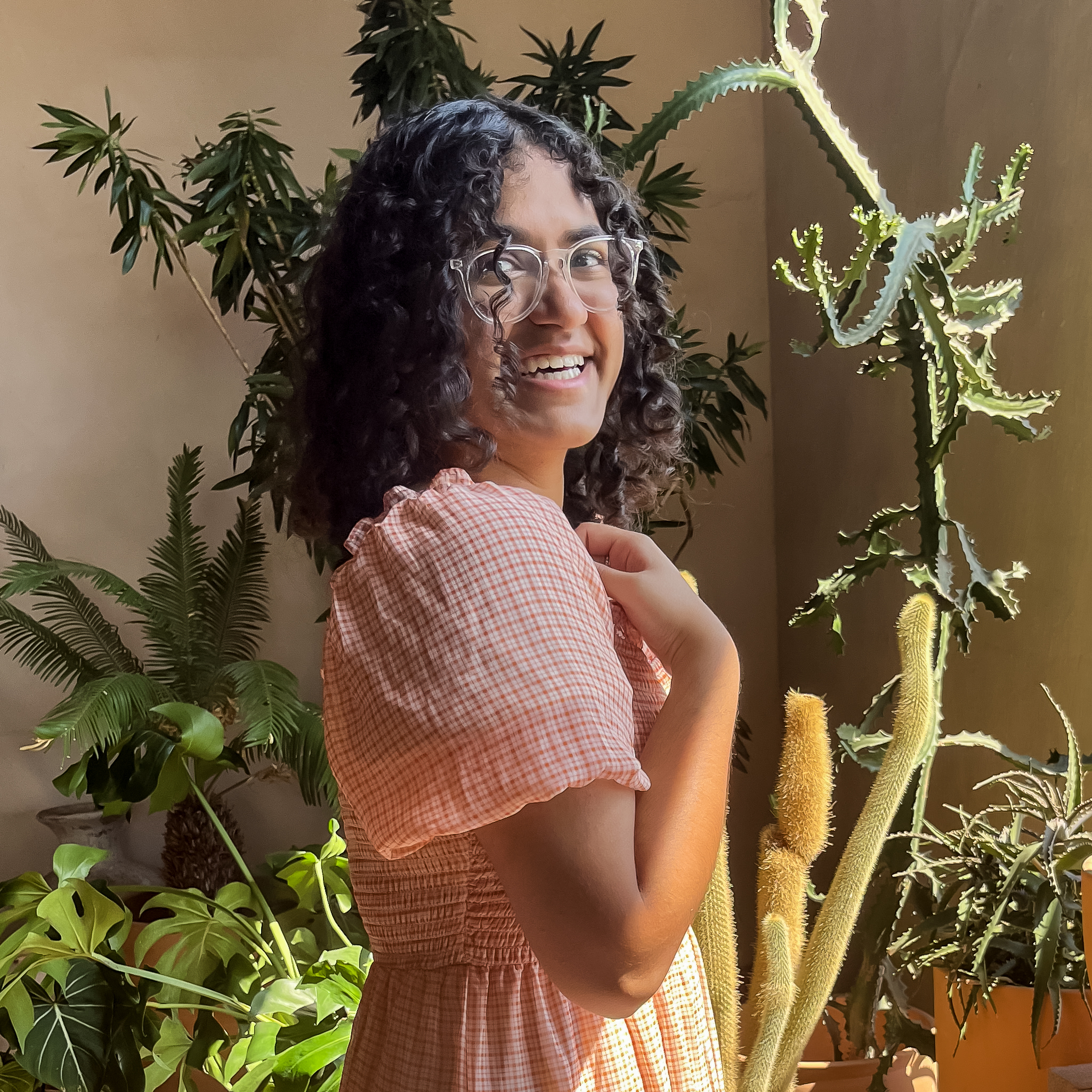Nidhi Kamath says being born to immigrants is one reason she leads with empathy and openness.
Byline: By Kathryn Gage (Writer)
One of Nidhi Kamath’s first memories was being teased in her elementary school cafeteria about what was in her lunchbox.
“I’d have to go to school and try to explain myself and defend myself,” Kamath said. “When you’re a kid, you’re like, ‘I don’t get why you’re picking on me.’ I think as I’ve gotten older, I’m like, ‘Oh, it’s because there’s some cultural differences.’”
Such experiences balancing peer relationships with her cultural identity were pivotal for her perspective on leadership, Kamath said. As vice president of the College of Biological Sciences (CBS) student board, she said she strives to lead with inclusivity and understanding, serving as a bridge connecting CBS students to the faculty and staff who teach them.
Gillian Brown, president of the CBS student board, works closely with Kamath and describes her as a person who leads with vulnerability. During weekly meetings with students, Brown recognizes the extra steps Kamath takes to connect with people.
“Her first instinct is to always be a super active listener,” Brown said. “She presents herself in a way that’s really approachable and welcoming, which she’s very intentional about.”
Brown said that Kamath uses her leadership position to uplift others. She does not think that Kamath allows her position to influence the way she connects with her peers.
“Not asserting any sort of power hierarchy over people, even though she is in a really important leadership position. She always makes sure to meet people where they are,” Brown said. “In those moments, she is very open and willing to share about struggles that she’s currently working through or has worked through in the past and personal experience related to those, and that level of vulnerability isn’t required of her at all, but she always goes the extra mile.”
Kamath said her job is to lead a student board that accurately represents the CBS and serves as advocates for both the student body and faculty.
“I’m very inclined to hear people out.” Kamath said, “I think it forces you to see the wider picture and be less judgmental.”
Kamath believes that her empathy in leadership comes from her life experience as a child born to immigrant parents. Both of Kamath’s parents were born and raised in India and moved to the U.S. to pursue their careers.
Graduating in the spring with a degree in ecology, evolution and behavior and a computer science minor, Kamath traced her educational passions back to her childhood.
Kamath said her love for the environment and conservation started as a child. She would turn on the TPT public network show “Nature” and watch it every week from start to finish.
“I used to sit there and watch it from the start all the way till the end of the credits, every single time. I was really obsessed with it,” Kamath said. “I just remember sitting in front of the screen and being like, I want to be one of those people on the screen, looking at all after the rhinos and the elephants.”
Prior to her vice president position, Kamath joined the CBS student board her sophomore year on the mental health and outreach committee and spent her junior year on the research committee. She said these committees work together to advocate for CBS students.
Kamath was one of the members responsible for creating the Lab List, a collection of current labs at the university that connects students to research opportunities.
When arriving on campus as a freshman, many are told the importance of building their research resume and finding lab experiences, but according to Kamath, this can be daunting. Most students do not know where to start. The Human Research Toolkit or Lab List aims to eliminate this uncertainty.
After working in three different research labs, Kamath understands the barriers that arise for students and wishes it were easier for her to navigate research opportunities.
“You’re in a new space. You don’t know where you are. I think it’s daunting because you’re scared of getting connected,” Kamath said. “A lot of students just don’t know what to do.”

